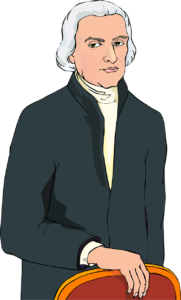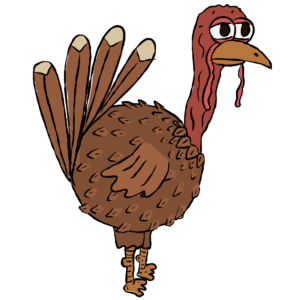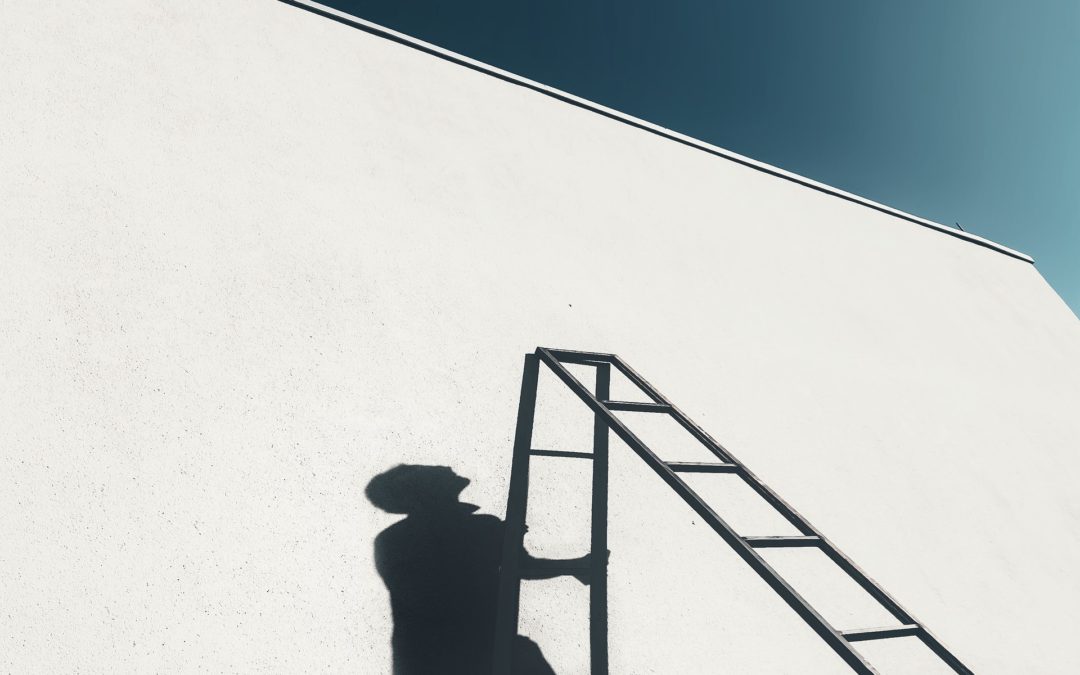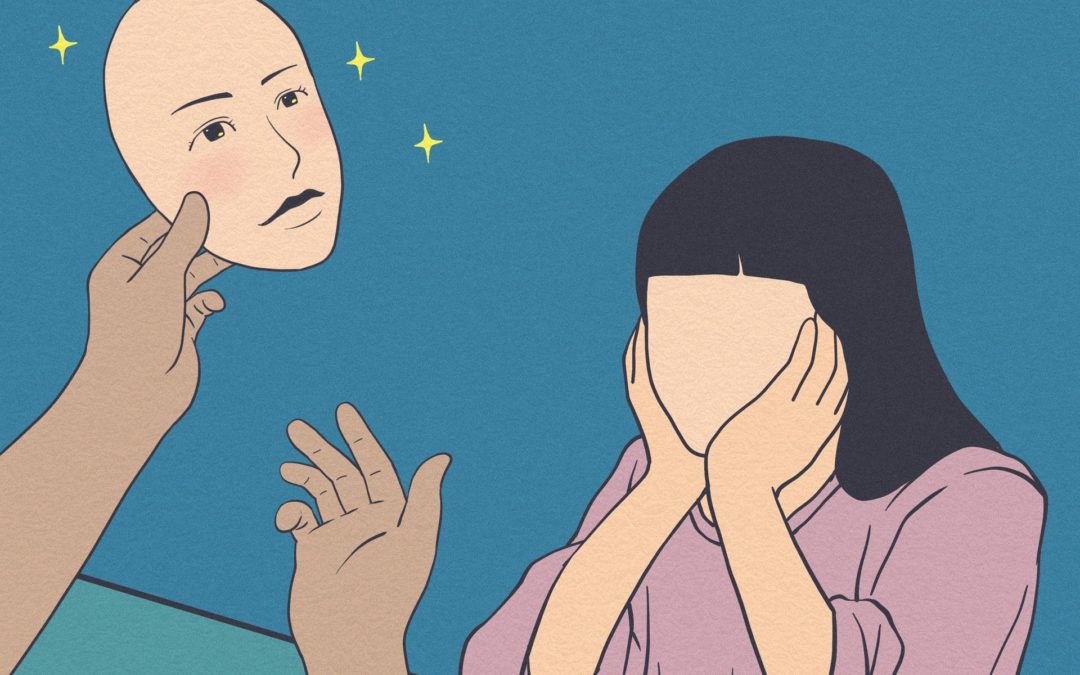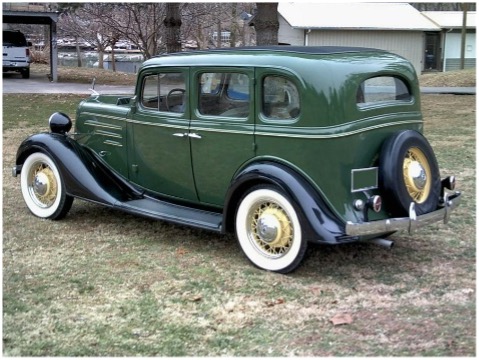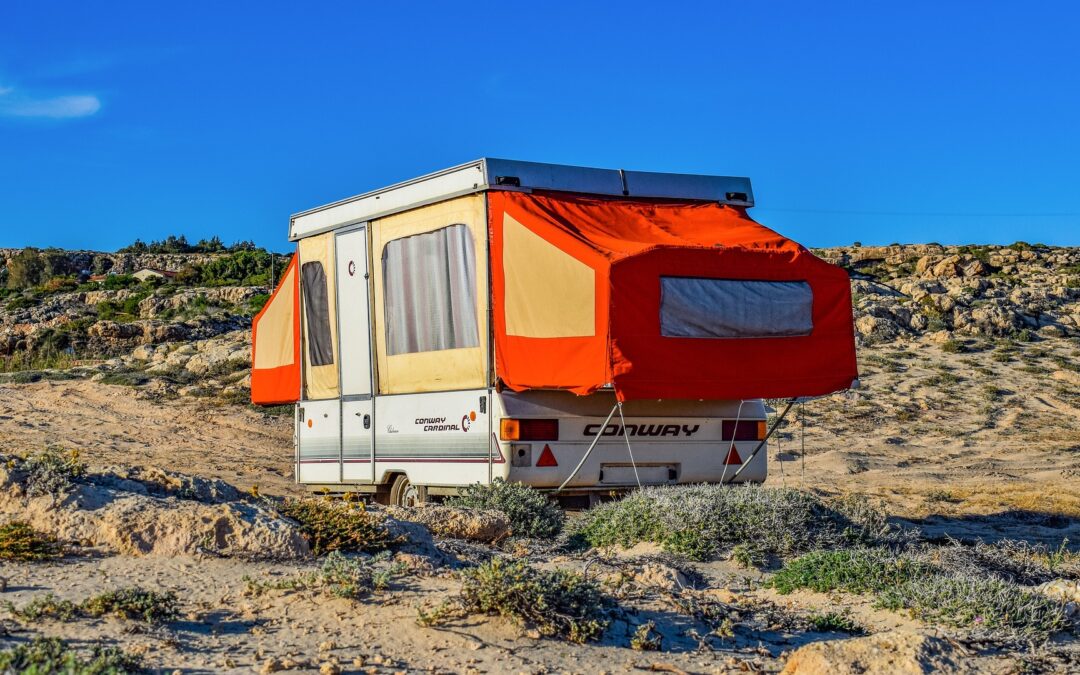
AAAAAAh Vacation
By Farrell Fand
“This is going to be the best vacation ever,” I said to Anna, my wife.
“Maybe, but do we have to use the pop-up camper?” she whined. “Driving all the way from New Jersey to Quebec with that thing behind us doesn’t seem like a good idea. Can the car do that kind of trip? It’s 525 miles, remember.”
“I had the car checked, and it’s fine to go. I’ve planned everything. I know you don’t like using the camper, but I promise we’ll only stay in campgrounds that have immaculate bathroom facilities. That’s important to you. We can’t afford to use motels, and we have a camper. It’ll be fun. You’ll see.”
“Mom, we can play ‘Car Bingo’ and ‘I Spy’ while we ride,” 9-year-old daughter, Beth, encouraged.
“Can I eat cookies in the car?” our seven-year-old son, Pete, asked
“Maybe,” she responded and we left Maplewood, off for an adventure.
“Oh, Canada,” I started singing when we pulled out of the driveway.
“Dad! Stop!” Beth and Pete shouted at almost the same time.
“Stop yelling, you two. I want this to be a peaceful vacation,” warned Anna.
“And fun,” I added.
As usual, the best-laid plans of Farrell Fand ofttimes go astray, and they did regarding timing. I planned the first stop for five in the afternoon, but five became eight. We had to stop along the road and eat some peanut butter and jelly sandwiches for dinner. Then, I drove the rest of the way to our first campground.
“Bonjour,” the Canadian gatehouse attendant said.
“Bonjour,” I replied. “We’re the Fands. We have a reservation for a campsite. I’d like to get there right away. We’re exhausted from traveling. Which one is ours?”
“Bienvenue dans notre camping,” he replied.
Oops. He didn’t speak English and we didn’t speak French. Instead of talking, the Quebecer led us to our campsite, waving his arms to indicate “Follow me.”
Once we were parked, I chased him down the road yelling the only phrase I knew in French. “Ou est la toilette? Ou est la toilette?” (Where is the toilet?)
I must have said it right, because he pointed to a building just down the lane. Like the whole campground, it had decorative lights strung along its rooftop and looked festive. Hopefully, it would pass Anna’s inspection.
When we got to the door, we were a bit confused. “Dad, is this the door for the ladies’ room? Then where’s the men’s room?” Beth asked.
“I don’t know,” I said. “Let’s check with someone.”
Eventually, a man walked toward the door. “Do you speak English?” I tried.
“Oui, I do.”
“Where are the bathrooms? There’s only one door.”
“Oh no, there is only one. It’s for men and women.”
“Let’s get out of here, right now. I’m not using a coed bathroom. Not a chance,” Anna said to me.
“Look, it’s only one night, and I’m too tired to drive. We don’t even know where there is another campground. Can’t you try to deal with it?” I pleaded.
“Ok, but I don’t like this at all.”
Everyone survived. The next day, the trip to Quebec was relatively short, and we found our next campground easily. People there spoke both French and English. Amen, I thought. The bathrooms were sex-separate, and clean, hallelujah. That first campground was just a minor glitch on what would be a vacation our family would remember with fondness.
Quebec was a delightful place to visit. In addition to the buildings and ambiance, there were street vendors, artists who would sketch one’s portrait, and music. French was fine when it was backed up with English. We were surprised to meet someone from home in the quaint historic area of the city. An elegant dinner at a fancy French restaurant capped off the evening. Wow, what a great vacation! I thought.
That night, we returned to the campground and used the separate bathrooms. All was well. The beds in the camper were comfortable, and we drifted off to a good night’s sleep.
“What was that? It sounded like a huge crash,” Pete whispered to me.
“I heard it too. Don’t wake Mom and Beth,” I cautioned.
I needn’t have worried. A clap of thunder woke our family and probably all the sleepers in the campground, as well. Big, jagged lightning lit up the sky.
“What’s happening?” Beth was up.
“Just a little storm,” I told her. “Nothing to worry about. It’ll stop soon.”
Anna was awake too. “Are you sure about that? There’s a car driving around the campground. It has a yellow light blazing on top, and it’s going back and forth, past all the sites. That can’t be a good omen.”
She was right. The aerial bombs got louder. Lightning bolts hit the ground near us. We’re sitting ducks, I worried.
“Let’s stay close together for a while,” Anna suggested. We sat on one of the beds, and hugged each other, Anna whimpering, and all of us shaking. It took several hours for the storm to let up, but everyone finally did get back to sleep.
The next morning, we cut this leg of the vacation short and headed for the next stop, Niagara Falls. It’ll be clear sailing from here on, I thought. This will be fun.
The falls were amazing and for a fee, we could walk behind the torrents of water. “Let’s do it,” I said.
The kids were eager, Anna, not so much! “I don’t know about this,” she said. “It could be dangerous.” Our youngsters pleaded until she agreed, “Oh all right. But we have to be careful!”
An elevator took us deep underground. The doors opened into a kind of dressing room. People were putting on black raincoats and boots, so they wouldn’t be soaked when we walked behind the waterfall. I pointed, “Let’s put some on.”
Anna stayed near the elevator, not moving. “Come on. This’ll be fun,” I coaxed her.
“I can’t do it. I’m terrified. There’s no way I can stay down here. I’m going back. Just go without me,” and she hurried into the up elevator.
The kids and I walked behind the falls and had an amazing experience. When we were back on top, Anna reported to us, “I had to fill out a form, telling why I couldn’t stay down there. I didn’t know how to explain it, so I wrote ‘fear of black raincoats.’ They said they’d never heard that reason before.”
A day at Niagara was sufficient; I closed the camper and started driving home. This would be an easy, drive, and we’d be back in just a few hours.
You know how you don’t look at the dashboard of your car too often while you’re driving? The road and noisy kids in the backseat take all your attention. Once we were on our way, I glanced at the dials, just to check our speed, and noticed the temperature gauge screaming at me, not literally, but there were blinking red lights. The car was overheating.
“We have a little problem,” I explained to Anna. “It looks like the car is too hot. I have to pull over to the side of the road. It’s dangerous to drive the car right now.”
“Dangerous? Stop. Stop!” she said.
“Kids, we’re pulling over to the side of the road. There’s a problem with the car. Why don’t you and Mom wait on that little hill over there, while I open the hood and see what’s going on? This probably isn’t a big problem.” But it was. Steam was coming out of the radiator. I knew that if I waited a while, it would cool down and I could drive to get help.
A good Samaritan saw us and pulled over. “Hey buddy. Looks like you’ve got a problem. Do you need any help?”
“No,” I answered. “The car’s just overheated. I’m going to let it cool down and drive to a gas station to get it fixed. Thanks for stopping. I appreciate your help.”
“OK. Good luck,” he said. Then he got into his car, put it in gear, and backed into the front of our Dodge Dart by mistake.
He started to get out of his car. “Just go. My car’s ok. Thanks for stopping. Go,” I said, and he did.
Now, Anna was wailing, and Beth and Peter were weeping. The car did cool off, and I drove slowly to the next exit, Batavia, New York. The radiator overheated again, but there was a gas station in sight. Hallelujah, I thought. They’ll fix the car, and we’ll just go home.
“Man, your radiator is shot. You need a new one.” That was the mechanic.
“Can you do it today?” I asked.
“Well, today’s Saturday. Nothing’s open. I can’t order a new one until Monday, but I can get it for you as soon as possible. Maybe Tuesday.”
“What about our camper? Can leave it here?” I asked.
“Hell no. We don’t have room for it. You know what? There’s a great campground a few miles down the road. People love it. I can tow your camper tomorrow and you can stay there until your car is fixed. A motel is just down the road, where you can sleep tonight. I’ll take you there.”
“That would be fine. A night in a motel sounds great,” I said. “Can we go soon?”
Twenty minutes later, we were at the Batavia Motor Inn. This will be restful. We can take showers and get a decent night’s sleep. Tomorrow will be an unplanned extra vacation. This’ll work out fine, I thought.
The hotel room was neat, although it looked a bit “worked.” A queen bed and two singles: perfect. It was clean: excellent. The manager said there was a restaurant just a block away: fantastic.
“Dad, what should I do?” Beth said, when she came out of the bathroom. “The toilet overflowed. I just flushed it, and a lot of water poured out all over the floor.”
The manager was apologetic and came with a bucket and a plunger. “We’ll go out to eat, while you take care of this,” I told her.
“C’mon kids, let’s walk to the restaurant. You can get anything on the menu, regardless of the price. This is going to be a special meal. We’ve earned it today.”
The four of us dragged ourselves out of the motel and started walking to the restaurant. We could see it from the motel. “Hey kids, walk a little faster. I’m starving,” I said.
“Daddy, my foot hurts,” that was Peter.
“You’ll be fine once we get to the restaurant and sit down. You’ll see.”
“Dad, his foot’s bleeding,” Beth said.
Pete wasn’t wearing shoes! And his foot was bleeding! I picked him up and Anna plucked a small piece of glass out of the heel of his foot. “We need disinfectant and bandages,” she moaned. “They’re in the camper, and our camper,” she said, “is at the garage!”
We turned around and headed to the motel. The manager helped us clean the cut and dress it. Back we trudged to the restaurant. “Everyone have shoes on?” I begged. This time, we made it there and had some food.
Sunday morning, the mechanic towed our camper to “Darien Lake Camp Park.” We signed in and maneuvered the trailer into the site without incident. “This will be great. Staying here for a few days will be a fun detour,” I encouraged everyone. “There’s even a lake for swimming, maybe boating. Who knows?”
Once the camper was set up, we walked around the campground. Everything was soggy from the last few days of rain. There was mud everywhere; even our campsite was flooded, but the sun was out. “Let’s see about going to the lake. That’ll be fun,” I said.
“Oh, sure. Darian Lake is about ten miles down this road.” That was the office manager. Wait a minute. Ten miles? Our car’s at the gas station. “Can you give us a ride,” I asked.
“No way. I’m done for the day. Use your car.”
Right, our car is at the gas station, I thought.
“O.K. So, we don’t swim today. Let’s play volleyball. They have volleyball courts here, I think.”
“Dad, I looked at them. They’re just big mud holes with nets. We can’t use them,” Pete said. “There’s nothing to do here. I’m bored.”
“There’s a big problem,” Anna cautioned me. “The bathrooms aren’t just dirty, they’re unusable. They’re flush toilets and they’re full and filthy.” Anna is the connoisseur of toilets in our family. We’d left campgrounds because the bathrooms didn’t meet her approval.
“Maybe it’s just this one,” I offered. “Let’s check out the others. There are about ten of them here.”
We found one that was barely usable. The showers were no better. To get water, a quarter had to be inserted into the slot. While Anna was shampooing, we learned that twenty-five cents paid for just seven minutes of cold water. “Help! I can’t see and I don’t have any quarters,” she cried.
The kids and I scraped together a few quarters and she finished her shower. Quarters. We didn’t have any more and had three showers to go. “Beth, why don’t you go to the office and change these bills to quarters?” I asked.
Ten minutes later, she came back and said, “The office is closed. It’s Saturday and they close early. The sign said, ‘Back Monday,” so, no showers until then.“
Monday morning, the office reported. “The gas station called. They wanted to know if you would like to leave today. Your car is ready.” Yeeeeees!
We got out of there as fast as possible. The new radiator had solved our problem and the trip home would be safe. I drove, feeling relieved. Anna rode in stress mode, watching the temperature dial. “It’s getting hot! It’s getting hot! Stop the car.”
It was hot, but not overheated. I slowed down, and the temperature remained hot, but not in the danger zone. Instead of driving 70 miles per hour, I drove 40, so the trip took twice as long, but finally, “We’re home,” I said as I pulled into our driveway.
“You know, I’m thinking that next year, we could drive to the Grand Canyon.”
The car shook. The whole neighborhood heard the screaming.
“No. Never Again!”
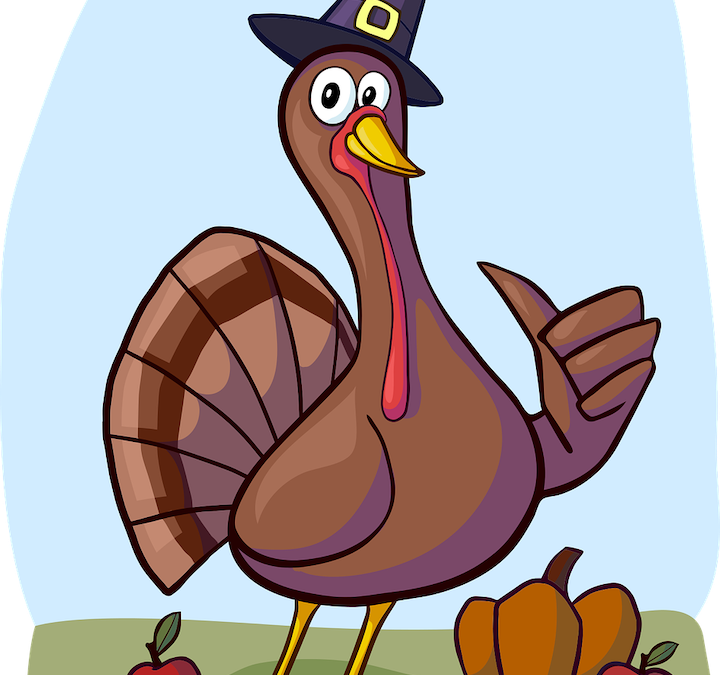

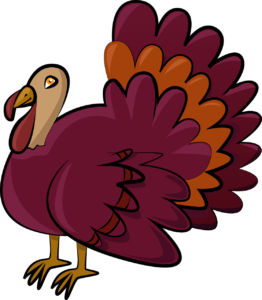
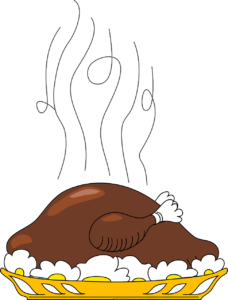 He continued the lesson. “It was a disaster for the descendants of Tom and Henrietta, who are now the main course of most Thanksgiving dinners. On that day, humans stuff themselves with food to the bursting point, then fall asleep afterwards. Before their holiday season is over, many of them will amass a good deal of body weight, I suppose in the manner of our fattened cousins.”
He continued the lesson. “It was a disaster for the descendants of Tom and Henrietta, who are now the main course of most Thanksgiving dinners. On that day, humans stuff themselves with food to the bursting point, then fall asleep afterwards. Before their holiday season is over, many of them will amass a good deal of body weight, I suppose in the manner of our fattened cousins.”
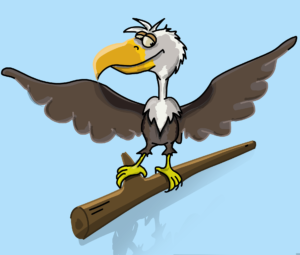 “Well, it’s uncertain Franklin’s proposal was serious. Some say he suggested it to annoy Thomas Jefferson, who wouldn’t eat turkey–it upset his stomach and made him break out in a rash.”
“Well, it’s uncertain Franklin’s proposal was serious. Some say he suggested it to annoy Thomas Jefferson, who wouldn’t eat turkey–it upset his stomach and made him break out in a rash.”